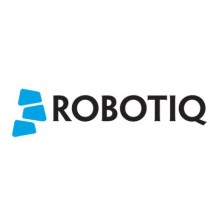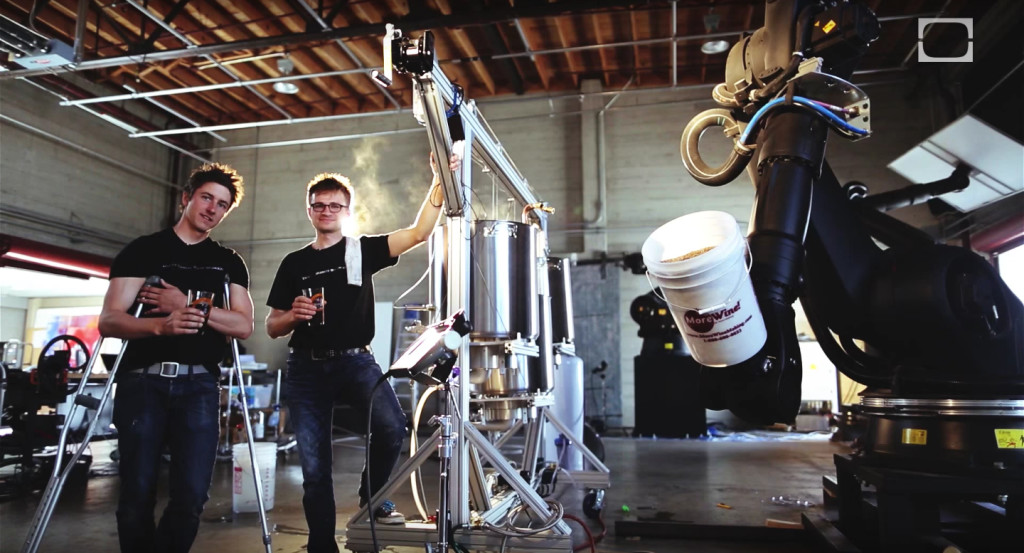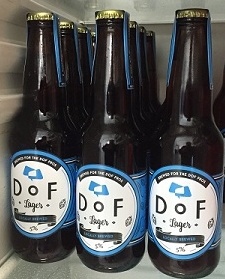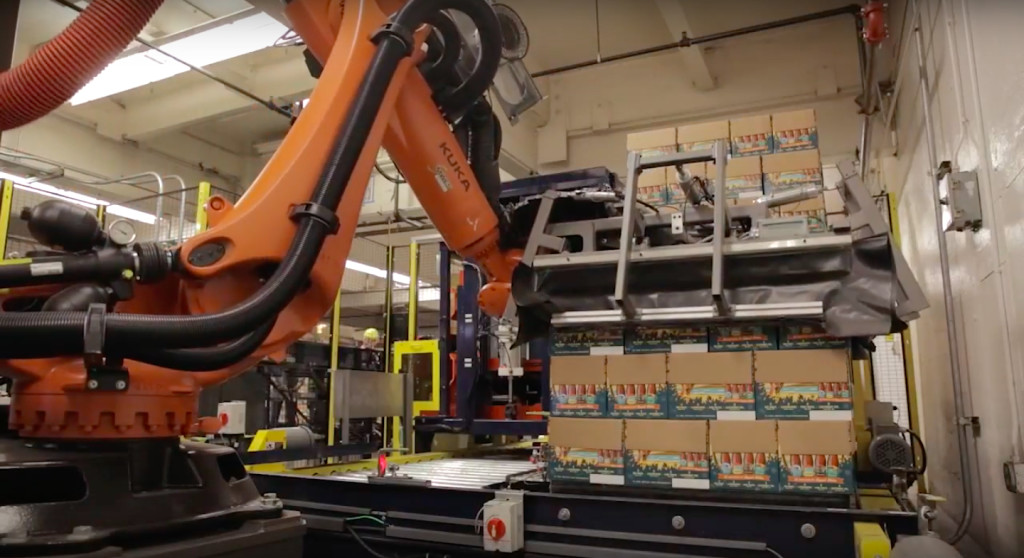
Robohub.org
Craft breweries and robots
Craft brewing could be the perfect industry for collaborative robots. But, does automation mean losing your artisan status? We find how craft breweries can use robotics to scale-up their business without compromising on quality.
Robotics and craft beer don’t sound like they go together, right?
Think of craft beer and you think of a lone artisan brewer, stirring a huge pot of boiling malt with a long wooden spoon. Think robotics, on the other hand, and you probably think of a huge factory with automated conveyor belts, rivers of bottles and an army of robot arms.
In the past, automation meant mass produced beer — not anymore. Robots are coming to craft brewing.
Craft beer’s popularity is a problem for brewers
We’ve been thinking a lot about beer here at Robotiq because we recently tried our hand at home brewing. We made a limited edition batch of DoF Lager especially for members of the DoF robotics community. Yeah, we like a challenge at Robotiq — lager is one of the trickiest beer styles to get right.
Our brewing experience got us thinking about the craft brewing industry. Craft beers are now popular in many countries. This is great because it means that quality beer is everywhere. However, it’s popularity also causes a big problem for brewers. How can you scale up a craft brewery while staying true to your artisan spirit?
Ben Dobler is the Brewing Innovation Manager for Windmer Brothers. He explains a familiar problem for brewers:
“You build your perfect brew house and then, all of a sudden, you can’t make enough beer so you increase your fermentation capacity. Then you have to increase your cellar capacity. Well now you can brew it, you can cellar it, but you can’t package it fast enough. So, now you need to increase your packaging efficiencies, your racking line efficiencies, speeds, size. Then you start that cycle back over again.”
The more popular your beer becomes, the more people want to buy it. Sooner or later, all manufacturing businesses hit a bottleneck. For brewers, that bottleneck could, quite literally, be in the neck of a bottle.
How to use robots to scale-up your brewery
Earlier this year, I visited a craft brewery where they do everything by hand. It’s a small brewery, but not tiny; they can brew over 1500 litres per day. One thing that struck me, as an engineer, was that they did all their bottle capping with a bench capper (which caps two bottles at a time by pushing down hard on a lever). If this were my brewery, I thought, I’d automate that task.
There’s a real danger of musculoskeletal disorders when performing this type of repetitive action hundreds of times a day. Also, the task doesn’t add any value to the beer, it’s just a necessary step in the bottling and packaging process. Surely, a perfect candidate for automation.
Craft brewers are often suspicious of any type of automation, which I understand. There’s a worry that using robots will mean that you can no longer call your beer an artisan product; however, automation doesn’t mean you have to make generic beer. In fact, automation can free you up to make even better beer.
“When we talk about automation, in some circles within the craft beer world it’s almost a taboo word, which to me is kind of baffling.” Ben Dobler, Windmer Brothers
In 2015, Windmer Brothers made a brave choice to add robotics to their craft brewery. They added a KUKA manipulator to help with palletizing, which is also a non-value-added process.
Ben makes a good point in this video. If you give the repetitive tasks to a robot, you have more time to focus on other aspects of the brewing process — like coming up with new beer recipes!
As we are also starting to see in the artisan bread, farming and coffee industries, robotics is converging with the artisan food and beverage sector.
The robot used by Windmer Brothers was big — requiring a lot of space and restricted access — but collaborative robots are much smaller and are designed to work alongside humans. They can fit right alongside your existing equipment.
How to start using robots in your craft brewery
As with any investment, it’s a good idea to consider specific applications before deciding to buy a robot. A good place to start: How to Get Started With Collaborative Robots and the eBook How to Shop for a Robot. Use the worksheet in the learning kit to assess some possible tasks for the robot.
Most craft brewers who have started using robots have applied them to packaging processes. Packaging applications are a great place to start because:
- Packaging is a non-value-added process: The beer is already made at this stage so there is no chance of the automation compromising on quality.
- Packaging has a high risk of musculoskeletal disorders: As anyone who has packed beer knows, it involves a lot of repetitive movements. This might not be risky when your production is low; but the more beer you make, the higher your risk of repetitive strain injury (RSI).
- Hand packaging produces breakages: Packing bottles into a box is a simple task, but after you have done it over 300 times (and you’re only halfway through the batch) you are much more likely to drop a bottle or two. One big advantage of robots is that they don’t get tired.
- Packaging usually doesn’t require extra technology: Some of the tasks which you can automate in craft breweries will require extra machines (like automatic labeling machines or semi-automatic bottle cappers). However, packing applications are usually going to be palletizing or simple pick-and-place tasks, which require no extra sensors or equipment. This makes them a great first robot application.
In the next article, we will discuss specific applications in a craft brewery which are great for robots. None of these tasks involve touching beer, so your artisan status is safe. However, as the guys from Dirty Robot Brewworks show in this video, you could also use robots in the cooking if you really wanted to.
tags: Automation, c-Industrial-Automation, manufacturing, robotics, robots









